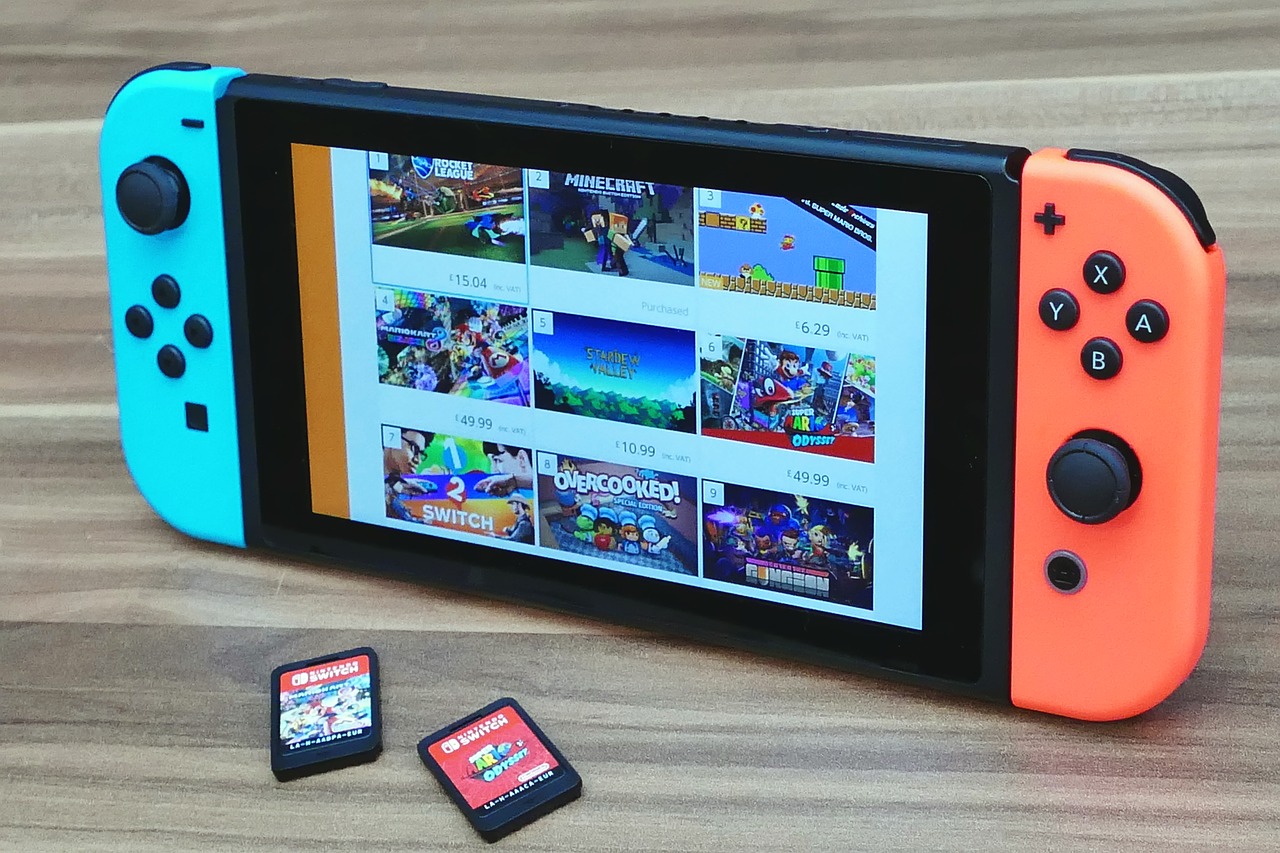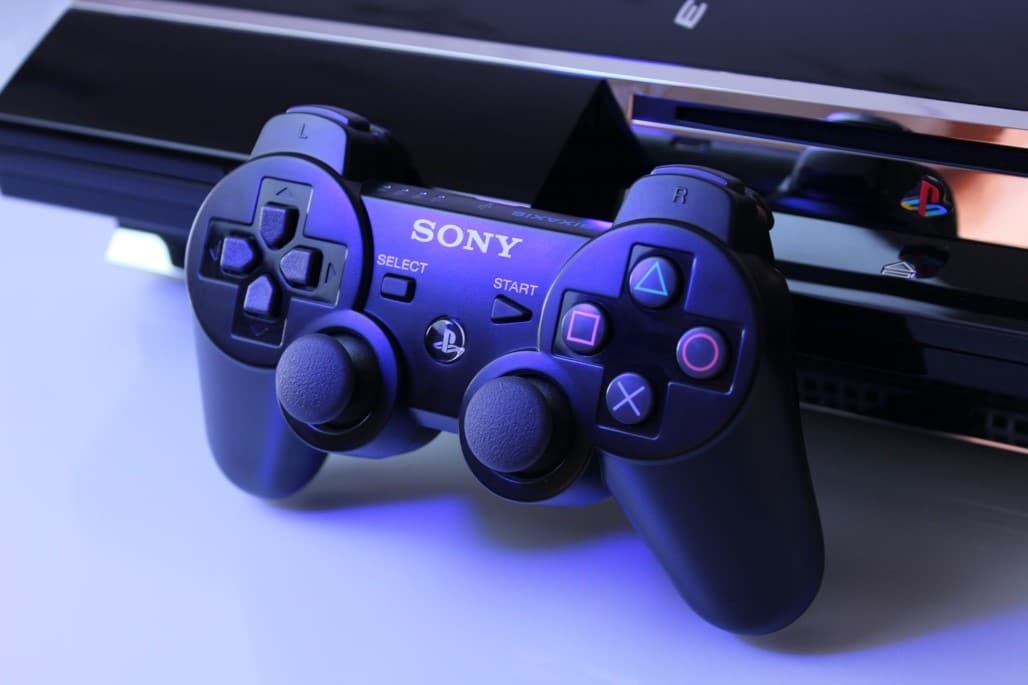Company: Nintendo Co., Ltd
CEO: Shuntaro Furukawa
Founders: Fusajiro Yamauchi
Year founded: 23 Sept 1889
Headquarter: Kyoto, Japan
Employees (FY2019): 5944
Type: Public
Ticker Symbol: NTDOY.PK
Annual Revenue (FY2019): US$10.8 Billion
Profit | Net income (FY2019): US$1.74 Billion
Products & Services: Game Consoles | Toys and Cards | Arcade | Home Consoles | Nintendo Switch | Wii | Handhelds | Mobile devices | Hardware | E-shop
Competitors: Sony | Google | Microsoft | Amazon | Electronic Arts | Activision Blizzard | Ubisoft | SEGA | Activision | Rockstar | Crescent Moon Games | Zynga | Disney Interactive
Fun Fact: Did you know that Nintendo started as a card-game company that offered hand-made cards across Japan in the 1890s?
The name, brand, logo, and products associated with Nintendo are revered in the gaming industry for a reason. From hand-made cards to technologically advanced Nintendo Entertainment System, the company has a rich gaming history.
With gaming in its DNA, Nintendo did not ride on history but focused instead on creating each game like its first and last. This transformed the company into a household name. To learn how the company became so successful, here is Nintendo SWOT Analysis.
Nintendo’s Strengths
- Extensive Distribution Network: From Kyoto to Melbourne, Frankfurt, and Richmond, Nintendo build an extensive global distribution network. Having an extensive distribution network has enabled Nintendo to increase sales and grow its global market share steadily [Source 1]
- Broad Variety of Games: From action to adventure, puzzles, strategy games, simulation, role-playing, races, sports, and educational, Nintendo’s wide variety caters to every situation. During the lockdown, Nintendo’s Animal Crossing enticed 11 million gamers by allowing them to live virtually on dream islands. [Source 2]
- A Century of Experience: Nintendo has been responsible for putting smiles on the faces of gamers for centuries. With over 130 years in gaming, Nintendo is synonymous with gaming and has the experience to address the needs of gamers by delivering the best product consistently. [Source 3]
- Effective Segmentation: Geographical diversification allows each regional market to operate as an independent entity, which reduces risks. Nintendo operates as three entities from Kyoto, Frankfurt, and Richmond. This enables the company to reap from the most lucrative markets quickly. [Source 4]
- Competitive Pricing: Even though Nintendo’s products are expensive when they are launched, the prices are reduced quickly once they attract more gamers. This pricing strategy gives Nintendo a fighting chance against free-to-playmobile games. [Source 5]
- Mixed POS: By mixing points of sale (POS), Nintendo ensures that gamers can access its products conveniently. Nintendo sells via its stores, wholesalers, retailers, and online stores. In the first quarter of 2020, a record 48.5% of its software was sold online as downloads leading to an increase in profits by 41%. [Source 6]
- Effective Marketing: After the failure of the Wii U Console, Nintendo realized the importance of adopting an effective marketing strategy. For Switch, the company positioned it as freedom for gamers by repeating the message “play great content, anywhere, anytime with anyone.” This is why Switch is so successful. [Source 7]
- Strategic Partnership: Nintendo partnered with Disney, which has benefited both parties immensely. [Source 8]
Nintendo’s Weaknesses
- Overdependence on Switch: Currently, 85% of Nintendo’s annual revenue comes from Switch, amounting to $9.9 billion. If Switch drops from the top suddenly, the company will struggle financially before getting another top game to rely on. [Source 9]
- Overreliance on Developed Economies: Nintendo relies on Japan, Australia, South Korea, North America, and Europe. All these economies are saturated with several companies competing for market share. [Source 10]
- Slow Response to Demand: With schools closed and billions of people staying at home and practicing social distancing, the demand for Switch increased drastically, but Nintendo’s response was not fast enough leading to stock-outs and shortages. [Source 11]
- Product Failures: Wii U Console was Nintendo’s biggest product failure. It was overhyped, low quality, overpriced, and marketed inconsistently, leading to product failure of epic proportions right from the launch. Wii U’s failure eroded trust and Nintendo’s reputation. [Source 12]
Nintendo’s Opportunities
- Focus on Emerging Markets: Since Nintendo has already captured substantial market share in the US, Europe, and Japan, it can focus on expanding into China, India, and other emerging markets in Asia, Africa, and Latin America. [Source 13]
- Invest in Mobile Games: The popularity of mobile games is increasing rapidly, and it is expected to reach $95.4 billion by 2022. Nintendo can tap into this lucrative opportunity by offering mobile-friendly versions of its popular games. [Source 14]
- Adopt AR&VR: Virtual Reality and Augmented Reality are the future of gaming, and now is the time to exploit these technologies to improve the gaming experience. (Source 15)
- Diversify Offerings: With its extensive catalog and capacity, Nintendo can enhance diversity its offerings to include Game as the Service or Software as a Service model. [Source 16]
Nintendo’s Threats
- Stiff Competition: From PlayStation to Xbox, Google, Amazon, Pioneer, LG Electronics, BenQ, Ubisoft, Electronic Arts, Rovio, Activision Blizzard, Zynga, CCP Games, SEGA, King, and many more, the competition is getting tougher by the day. [Source 17]
- Increase in Piracy: The profitability of Nintendo’s products is threatened by pirated alternatives and imitations, which has increased along with technological advances. [Source 18]
- Growing Health-Consciousness: Video games encourage a sedentary lifestyle and are associated with disorders and diseases like gaming disorder and obesity. Young millennial-parents are more health-conscious, which will reduce demand for video games as more children are encouraged to engage in physical activities. [Source 19]
- Stronger Substitutes: Gamers are switching from handheld and console gaming to online and mobile gaming. [Source 20]
- Shifting Demographics: Nintendo’s target market is declining in some populations like Europe, where communities are aging, with the number of youth declining. [Source 21]
- Technological Revolution: With numerous startups and giants like Google and Amazon working in the gaming industry, one of these companies can attain technological advantage and take over the sector along with a large portion of Nintendo’s market share. [Source 22]
References & more information
- Grubb, J. (2020, April 21). Nintendo Switch sales doubled year-over-year in March. Venture Beat
- MacDonald, K. (2020, May 13). ‘It’s uniting people’: why 11 million are playing Animal Crossing: New Horizons. The Guardian
- Webb, K. (2019, April 23). How Nintendo’s handheld video game consoles have evolved over the past 30 years, from the original Game Boy to the Switch (NTDOY). Business Insider
- Shiko, U. (2018, May 17). Nintendo taps operations whiz to lead in turbulent times. Asian Review
- Koksal, I. (2019, November 8). Video Gaming Industry & Its Revenue Shift. Forbes
- Lewis, M. (2020, May 7). Nintendo collects lockdown power-up as sales shift online. Financial Times
- Evangelho, J. (2018, June 20). Why Is Nintendo’s Switch So Successful? It’s All About Marketing. Forbes.
- Associated Press (2020, January 30). Nintendo seeks to follow Disney, cash in on its characters. Market Watch
- Strickland, D. (2019, April 29). Switch makes $9.9 billion, 85% of Nintendo’s yearly revenue. TweakTown
- Dreunen, J. (2019, January 2). Will the gaming industry clutch up? TechCrunch
- Kain, E. (2020, April 21). This Is Why It’s Almost Impossible To Buy A Nintendo Switch Right Now. Forbes
- Herold, C. (2020, January 24). 10 Reasons the Wii U Was a Failure. Lifewire
- Pei, L., and Sam Nussey. (2019, April 18). Tencent wins key approval to sell Nintendo’s Switch in China. Reuters
- Chutko, C. (2019, May 17). Nintendo’s big switch: Mario is finally going mobile, but the console king faces tough competition. CNBC
- Craddock, R. (2019, September 10). DreamGlass Air Will Let You Play Your Nintendo Switch In Private Augmented Reality. Nintendo Life
- Moorhead, P. (2019, August 7). Ways to Play the SaaS Game of Price Is Right. Mar Tech Series
- BBC Contributor. (2020, February 6). Xbox says Nintendo and Sony no longer main rivals. BBC
- Hernandez, P. (2018, June 28). The Nintendo Switch hacking scene is chaos right now. The Verge
- Karine, T. (2018, June 19). Playing video games too much might lead to a real problem, the World Health Organization says. ABC News
- Sgame Pro (2018, August 8). The Future of Video Games: Will Mobile Games Replace Consoles? Medium
- Kuzmanovic, J. (2019, July 15). Aging Population to Cut East Europe Deeper Than West, IMF Says. Bloomberg
- Givens, S. (2020, April 28). Nintendo’s future is far from sure. Asian Review
- Featured Image by InspiredImages from Pixabay
Tell us what you think? Did you find this article interesting?
Share your thoughts and experiences in the comments section below.












Thanks a lot for this excellent swot, helped me a lot for a work 😀